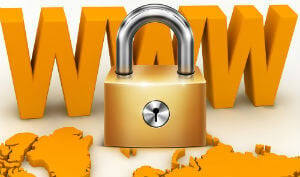Do Not Use Public Computer: Don’t depend any public computer from your nearest library or park to log in to your online accounts. Anybody can enter into those PCs and depends on security of that PC, they can grab all history of the sites you visited and also your account information from the PC you visited. Do Not Use Public WiFi: You can browse general websites and other educational websites through a publicly available or open WiFi. But don’t depend public WiFi to open your email account or bank account. Use A Strong Account Password: Always use a strong password rather that a simple easy guess password. Don’t use any word related to you or your relatives’ name. Please choose a strong password with special characters, and number combinations. (eg. StrONg!PaSSword#1). If possible, change your password monthly or twice in a year. Always Keep Clean Your PC: Keep away from malware attacks and virus on your PC. Install good antivirus and malware protection software in your PC and keep update. Secure your computer Internet traffic with good firewall software. See this article for keeping your PC clean ‘Top 7 free tools for clean performance‘. Keep Away From Unsecured Sites: You will get some malware warning and attack warning when you visit some forums and sites. If you get those warning, keep away from those sites or be careful while browse them. Log Out Online Account: Do not keep any bank, email accounts open. Even though they have auto log out feature, it is safe to log out after checking the information from your online accounts. Utilize Text Alert Feature: It is available for Facebook, Email Accounts and Bank Account for any kind of activity that we can set in advance in our account. This will help you to get immediate attention for any unauthorized activity on your accounts and you can take security measures to prevent them with in a short time. Keep Your Laptop and Smartphone Locked: It is good to keep your PC and Smart phone with time out passwords. It will protect you from the data breach if you lost your laptop or smart phone. Please find here the workout to wipeout data if you lost your iPhone. Use 2-Step Security: Email providers are giving (like Gmail) 2-step security to protect your email account from hackers. Use those protections for your email accounts if possible. Typically Emails contain the information about e-commerce websites and banking accounts and that is a good piece of information for the hackers. They can grab all your online account information, bank account details by a quick search in your inbox. Make Sure Your Email Is Not Compromised: Your email is important for all online accounts, because the password reset link is always coming to your email and the hacker can change it once he get access to your email account. Please check here to make sure your email is not compromised. Still you are not 100% protected, so always keep an eye on your important online accounts and report any suspicious activity to the account providers. If you really want to check your online account from a public computer or WiFi, please use private browsing. Thus will protect you from saving your browse history and password in the local PC. Notify me of follow-up comments by email. Notify me of new posts by email.
Δ





